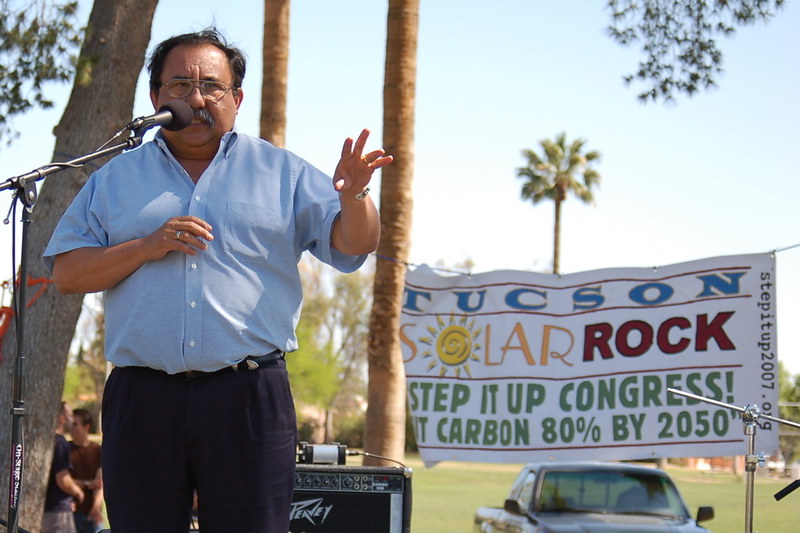Months of diligent research ranging from gila monsters to MDMA will reach a peak at a local biology conference Saturday.
The 24th Annual Biology Research Program Conference will host more than a hundred UA undergraduate and high school student research projects, in addition to keynote speaker and NPR senior correspondent, Shankar Vedantam.
“One of the most important parts of the scientific process is sharing what you learn both with scientists, but with the public,” said Carol Bender, director of the Undergraduate Biology Research Program.
Students will present their research using posters, with attendees walking around, providing feedback and asking questions. For many of the presenters, research began early in the summer and will continue past Saturday.
“Students have to be able to explain it in terms that make scientists part of them,” Bender said. “So they have to demonstrate scientific sophistication in the area that they’ve done research, but they also have to be able to describe it in terms that anyone off the street could understand. Including a sixth grader.”
UBRP is a paid research program for undergraduates where, following entrance, they choose a mentor to work with. They then conduct research throughout the summer and academic year, while receiving feedback from small discussions, workshops, lectures and other activities with UBRP students.
“It’s not a research experience,” Bender said. “It’s a community of scholars … I think it’s the most powerful way to teach.”
Since 1988, UBRP has grown from six departments with 19 students to 43 departments and 143 students. To compensate this growth, faculty mentorship has risen from 13 members to 240, during UBRP’s lifetime.
From these efforts, 977 presentations have been delivered at scientific conferences and 822 published in scientific journals from UBRP members, with an average of six National Science Foundation doctoral fellowships per year, according to UBRP.
According to the Survey of Undergraduate Research Experiences, a nationwide survey distributed to undergraduate research students, UBRP scored better in all 21 categories than national averages.
“I think UBRP is a great experience if you’ve never been exposed to research,” said Jackie Hu, a junior studying physiology. “You can always email professors and try to volunteer but if you’re volunteering in a research lab you’re not really being pushed versus UBRP, where over the summer they require you to work full-time.”
Hu’s research focuses on alternatives for morphine when controlling pain and to “learn about drugs and the mechanisms of action in your body.”
For this she conducted two separate types of procedures on rats, where catheters were inserted into their spinal cords. Each time is like “a 50-50 chance that the rats are paralyzed,” if a nerve is hit, so Hu had to follow Institutional Animal Care and Use Committee rules during her work.
Hu said she is looking forward to presenting her research, in addition to receiving feedback from her fellow peers.
“What we found isn’t exactly what we expected,” said Victoria Farrar, a sophomore studying environmental science. “You think you’re getting an answer but in reality you’re getting more questions.”
Farrar is studying what weather conditions lead gila monsters to “come out more.” For this she conducted fieldwork over the summer tracking the venomous lizards, before analyzing the results to determine patterns, including that higher wind speeds cause the sluggish creatures to come out more. This is an uncommon trait for reptiles, Farrar said.
“It’s been a lot of work,” she added. “It’s been really busy and I’m really glad I have something to show for it. It’s paid off.”
Vedantam, the keynote speaker, will focus on the “hidden brain” that causes cognitive processes external of human’s conscious awareness.
“It decides whom we fall in love with, whether we should convict someone of murder, and which way to run when someone yells ‘Fire,’” he wrote of the topic on vedantam.com.
Following the keynote speech, an awards ceremony will be held to commemorate several of the mentors, including Dr. James Lister and Dr. Bentley Fane.
The free conference is held at Keating and Medical Research Building from 1 p.m. to 5 p.m.
“You really have to see it for yourself,” Bender said.







